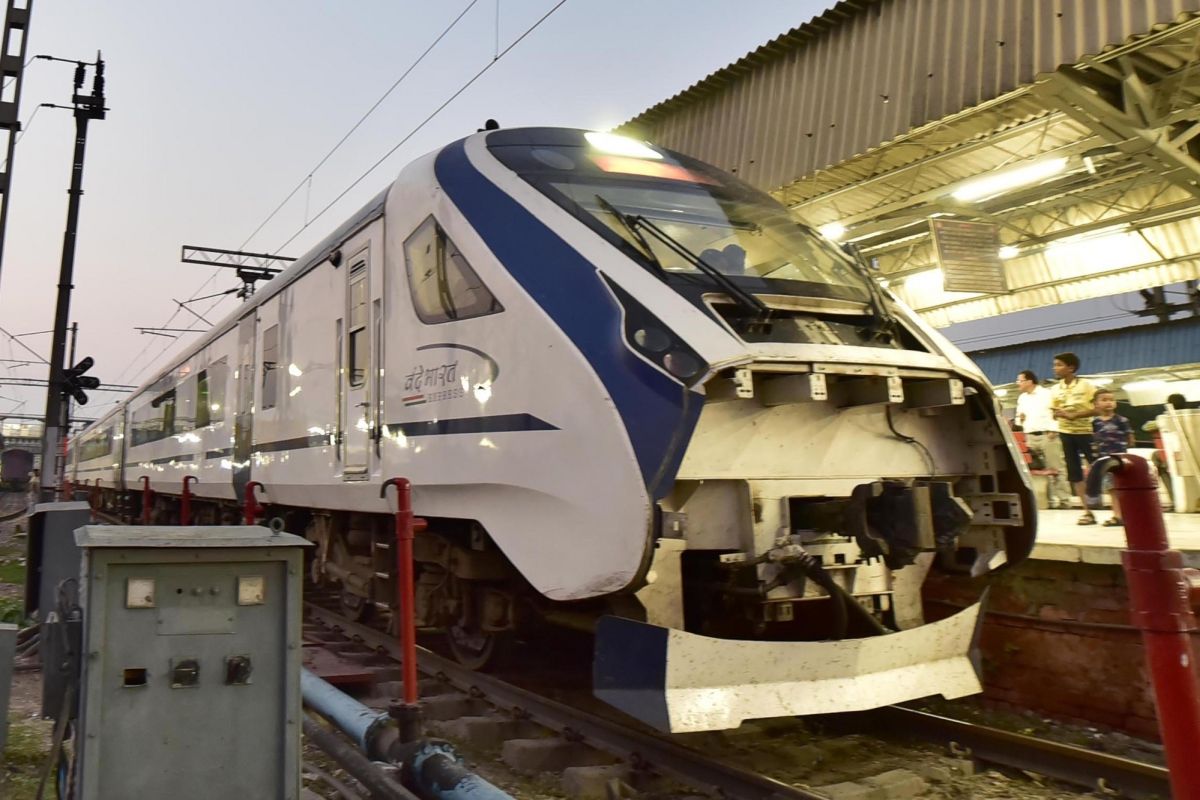ER confers awards for performance
Milind Deouskar, general manager of Eastern Railway, handed over the GM’s Overall Efficiency Shield to Asansol Division.
Though costlier – as per an estimate a passenger will have to pay over 40 per cent more than the normal fare – Vande Bharat Express train aims to provide a totally new travel experience to passengers.

File Photo
India’s third semi high-speed train, Vande Bharat Express, currently under trial in Delhi-Chandigarh sector, is all set to run on Mumbai-Ahmedabad corridor. People familiar with the development have said that a formal decision is yet to be taken but maintained that the Mumbai-Ahmedabad route is most likely to get the nod for running the next semi-high-speed train. They said that the route would also be commercially viable for the Indian Railways.
Though costlier – as per an estimate a passenger will have to pay over 40 per cent more than the normal fare – Vande Bharat Express train aims to provide a totally new travel experience to passengers. Speed, safety and service are the hallmarks of this train. It can run up to a maximum speed of 160 kmph and has travel classes like Shatabdi Train but with better facilities.
Advertisement
Coincidentally, Mumbai-Ahmedabad route is also witnessing the construction of a high-speed rail network for India’s first bullet train project. The third rake of Vande Bharat Express reached Chandigarh on August 18 for the oscillation trial. The train would undergo various trials for a month or 45 days after which mandatory clearance from the Commissioner of Railway Safety (CRS) will be procured.
Advertisement
The fourth rake is expected to be rolled out in September from the Integral Coach Factory (ICF), Chennai, a production unit of Indian Railways. According to the Indian Railways, there would be a total of 502 Vande Bharat Express trains manufactured at various facilities including Rae Bareli, Sonipat and Kapurthala besides ICF, Chennai. As many as 302 Vande Bharat Express trains will have seating facilities, while 200 others will be equipped with sleeper facilities.
Vande Bharat Express trains only with seating facility are expected to run on Shatabdi and inter-city routes and those with sleepers would be pressed on the routes of trains like Rajdhani, Duronto and other overnight journeys. The trial speed of Vande Express train will be of 100 to 180 kmph on the specified route.
The safety enhancements in the upgraded Vande Bharat Express trains include the Train Collision Avoidance System (TCAS) to prevent signal passing at danger (SPAD) cases and unsafe situations arising out of over-speeding and train collisions in station areas.
According to Railway authorities, the Research Design and Standards Organisation (RDSO) will perform several testing on the train, and then only the CRS will provide safety clearance.
Last week, Railway Minister Ashwini Vaishnav inspected the third Vande Bharat Express train and handed it over to the RDSO for testing. Since then, the trial process has been on.
Advertisement